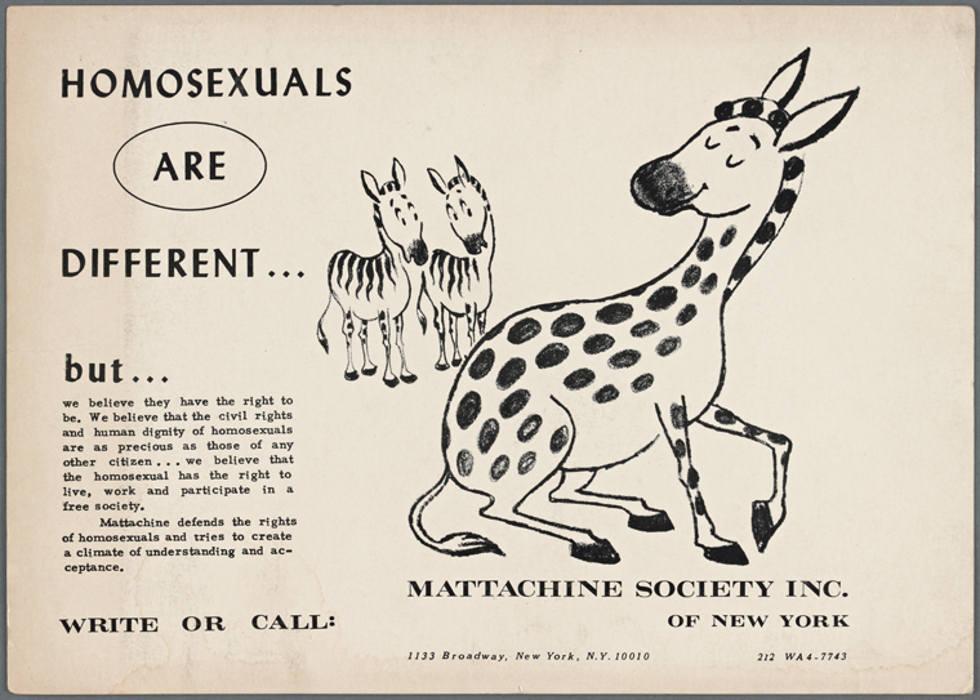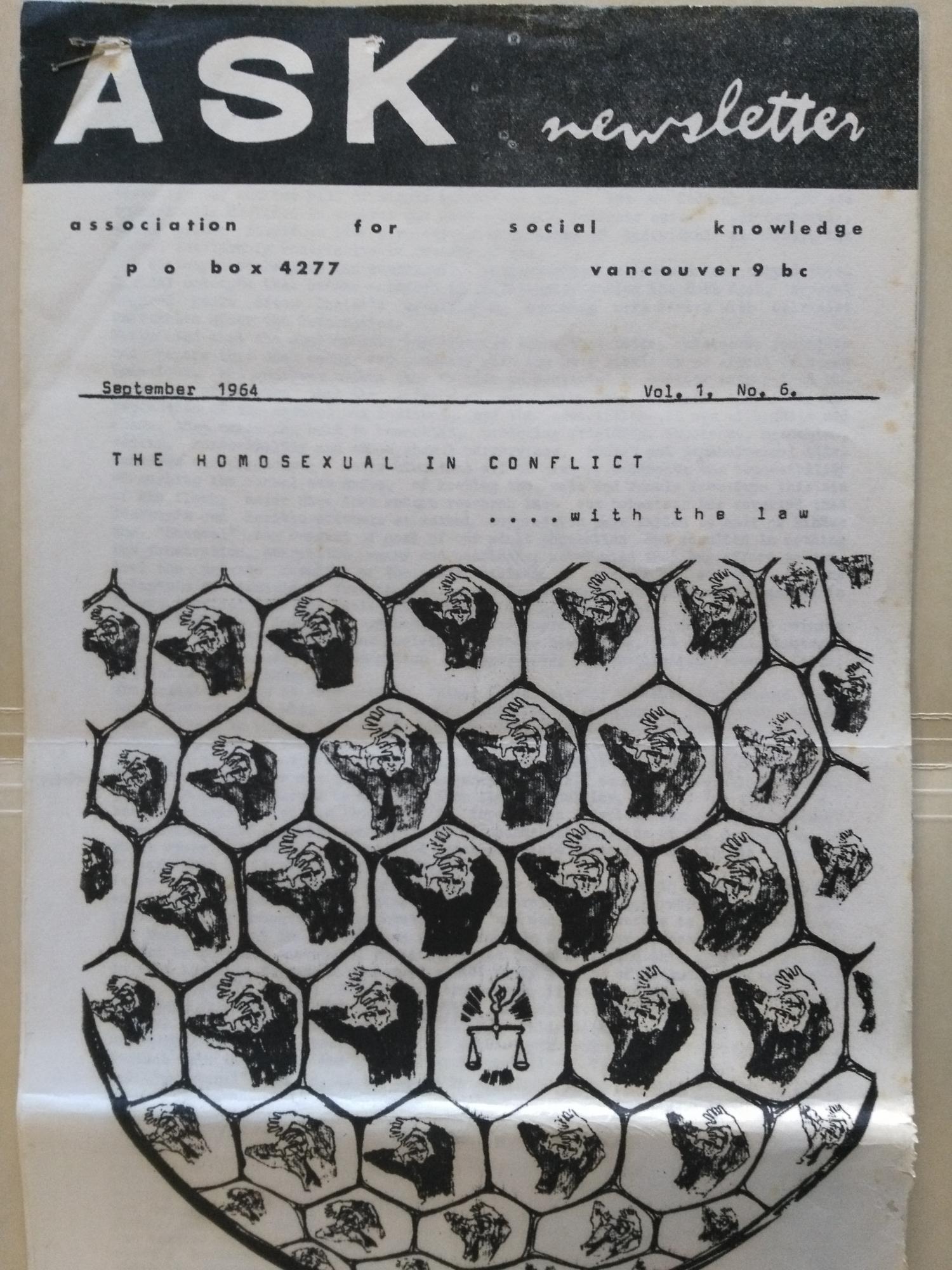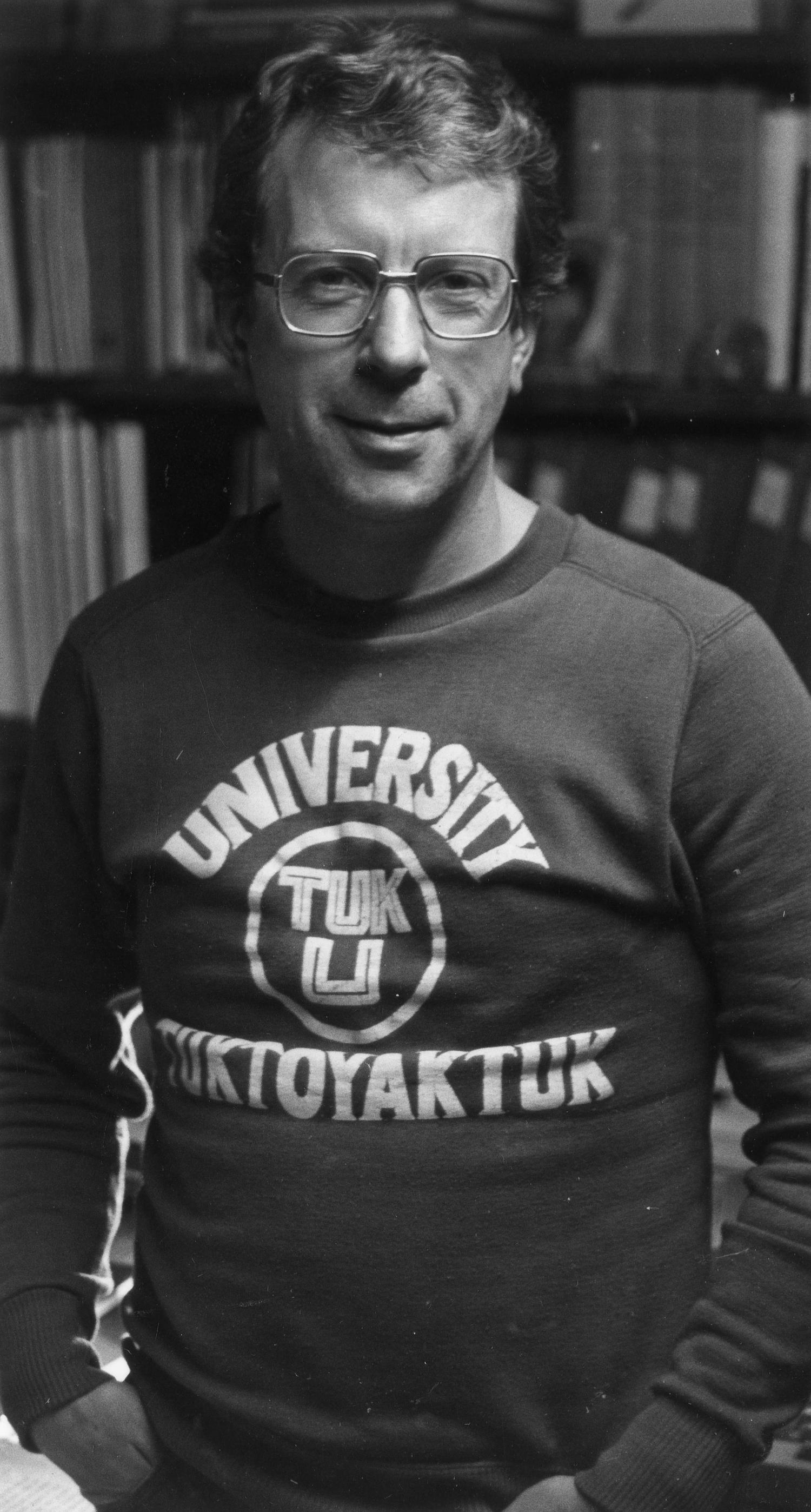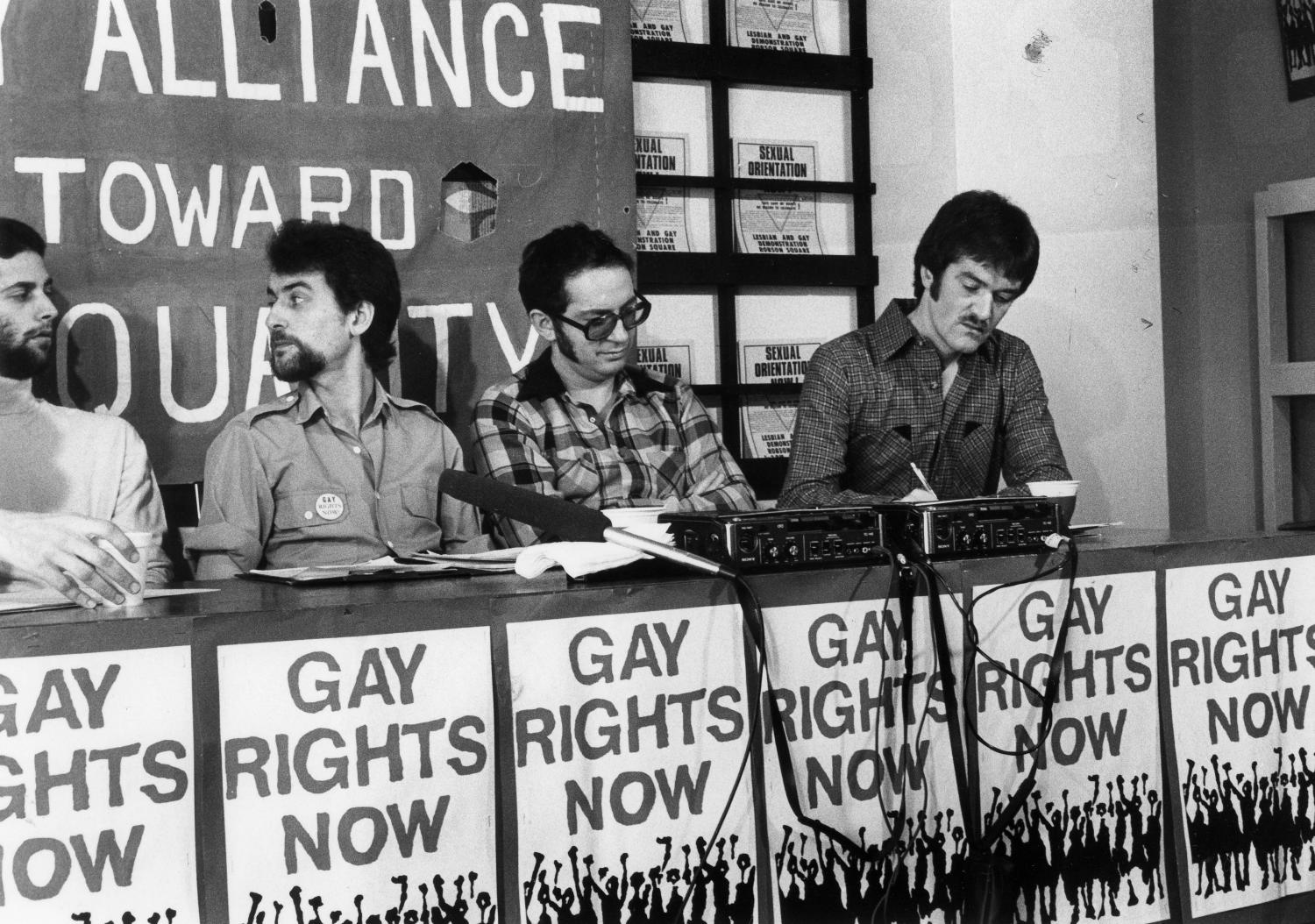First Gay Rights Group
Association for Social Knowledge starts in Vancouver
Date: 1964
Since Canada’s earliest days, homophobia was enshrined and legitimized in policy that deemed homosexuality a crime. In the British colonies, an act of ‘sodomy’ could elicit a death sentence, a punishment that was softened in 1861 to a 10-year prison sentence. But even after Canada’s confederation in 1867, LGBTQ Canadians were second-class citizens in their own home, regarded with suspicion and derision. Amendments to the Criminal Code in 1948 and 1961 categorized gays and lesbians as “criminal sexual psychopaths” and “dangerous sexual offenders.” In 1953, Canada’s immigration laws were amended to ban the entry of homosexuals, a policy that would endure for over two decades.
This bigotry was not only confined to the legal system — it pervaded society. “You would be shunned by your family,” said Ron Dutton, a librarian and archivist who manages the B.C. Gay and Lesbian Archives. “You would lose your job. Your economic opportunities would be permanently ruined. You would lose your freedom in many cases. You were [vulnerable] to a high degree of violence because there was tacit approval for people who went around beating up fags.”
He added, “In many ways, you had nothing to gain by being out as gay — and very few people were.”
Although it had emerged as a centre of counterculture in the 1960s, Vancouver was not immune to violence against the queer community. After a particularly brutal year of police harassment in gay bars and clubs, the Association for Social Knowledge (ASK) formed in 1964 in Vancouver. It was the first “homophile,” or gay rights, group in Canada. Drawing inspiration from similar groups in the United States and the Netherlands, ASK set its sights on tackling institutional homophobia. It threw parties and organized public discussions about topics ranging from gay marriage to “drag and transvestitism.” Ultimately, starting a conversation was the goal. “The problem in Canada was that no one believed we existed. No one talked about us at all,” ASK president Douglas Sanders would later tell the Vancouver Sun. “I believed that we needed to break through to some kind of visibility.”
ASK began publishing a newsletter in 1964. It was the country’s second queer periodical after Gay Magazine, which had been established only a few months earlier in Toronto. The publication was modest: written on a typewriter and filled with felt pen illustrations, its initial distribution numbered a mere 75. Given the legal status of gay sex, its recipients remained anonymous, their addresses locked up in a safety deposit box. What the newsletter called for, though, was ambitious. It wanted its readers to demand their elected officials take a stand and challenge the bigotry built into Canada’s system.
ASK soon expanded its operations, holding meetings in Seattle and remaining active in other parts of the United States. At its peak, ASK’s membership numbered somewhere between 150 and 200. They ran a gay community centre — the first of its kind in the country — along Kingsway in East Vancouver. By the late 1960s, it had moved its headquarters to Vancouver’s West End and was at the forefront of gay rights campaigning in the Pacific Northwest.
But for all the decade’s liberalized attitudes towards sexuality, society at large was still mired in its socially conservative past. Vancouver courts, for their part, treated charges of homosexuality as trivial, but there was still resistance across the province towards substantial reform — until the Klippert case. In 1965, George Everett Klippert was arrested in the Northwest Territories for “gross indecency.” After unapologetically confessing to his sexuality, a Crown-appointed psychiatrist deemed him a “dangerous sexual offender” and sentenced him to an indefinite prison term. The excessively harsh sentence lit a fire among the Canadian public and embarrassed federal politicians, who began campaigning for the decriminalization of homosexuality.
Decriminalization finally took place in 1969 under Prime Minister Pierre Elliott Trudeau’s government, a year after ASK had disbanded in February 1968. In two years’ time, Klippert would be released from jail. But the struggle wasn’t over. Now, the fight against homophobia shifted from the courts of law to the court of public opinion. They had a long road to acceptance ahead of them. On this front, the Gay Alliance Towards Equality (GATE) took over the spirit fostered by ASK. “In 1970, the average person would have told you, ‘gay liberation isn’t an interesting idea to me. I’ve never met anybody who is gay,’” Dutton later recalled. “By the end of the decade, there was nobody who could any longer claim they didn’t know that there were gays and lesbians out there in the tens of thousands. It was one of the greatest achievements of gay liberation.”
Today, sexual orientation is protected under the Canadian Charter of Rights and Freedoms, a step forward that owes much to the organizing and activism of ASK and other early gay rights groups.
Sources:
- "A Brief 2SLGBTQ+ Canadian History Timeline." Northreach Society, https://northreach.ca/education-2/lgbtq/a-brief-lgbtq-canadian-history/. Accessed 5 May 2021.
- "A Chronology of Advances in LGBT Rights in Canada, and in B.C." British Columbia Teachers’ Federation, https://bctf.ca/SocialJustice.aspx?id=6100. Accessed 5 May 2021.
- Griffin, Kevin. "For Gays, Breaching Castle Moat Was Major Advance." The Vancouver Sun, 23 June 1994, p. B10.
- Harris, Michael. "Our Battles, Our Own Battlefield." Xtra, 10 Nov. 2004, https://xtramagazine.com/our-battles-our-own-battlefield-40676.
- Ingram, Gordon Brent. Making "The Ghetto" in The Terminal City: Some Queer Language of Resistance and Community Formation in Mid to Late 20th Century Vancouver. American University, 13 Oct. 2006, http://gordonbrentingram.ca/scholarship/wp-content/uploads/2008/12/ingram-2006-making-the-ghetto-in-vancouver-present-at-american-university-essay1.pdf.
- "LGBTQ / Gay History in Canada." Davie Village, https://davievillage.ca/about/lgbtq-history. Accessed 5 May 2021.
- Peters, Rob. "Pride and Prejudiced | The Tyee." The Tyee, 4 Aug. 2006, http://thetyee.ca/Photo/2006/08/04/Pride/.
- Rau, Krishna. "Lesbian, Gay, Bisexual and Transgender Rights in Canada." The Canadian Encyclopedia, 16 June 2014, https://www.thecanadianencyclopedia.ca/en/article/lesbian-gay-bisexual-and-transgender-rights-in-canada.
- Roscoe, Will. "Mattachine: Radical Roots of the Gay Movement." Found SF, https://www.foundsf.org/index.php?title=Mattachine:_Radical_Roots_of_the_Gay_Movement. Accessed 5 May 2021.
- Tremblay, Manon. Queer Mobilizations. UBC Press, 2015.





